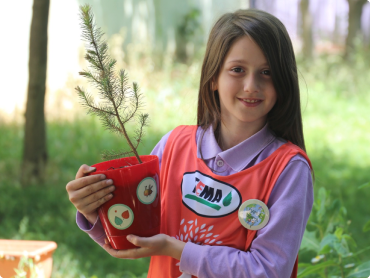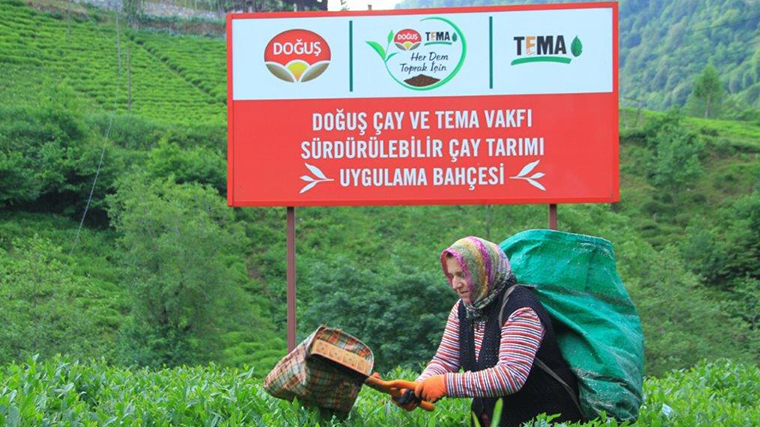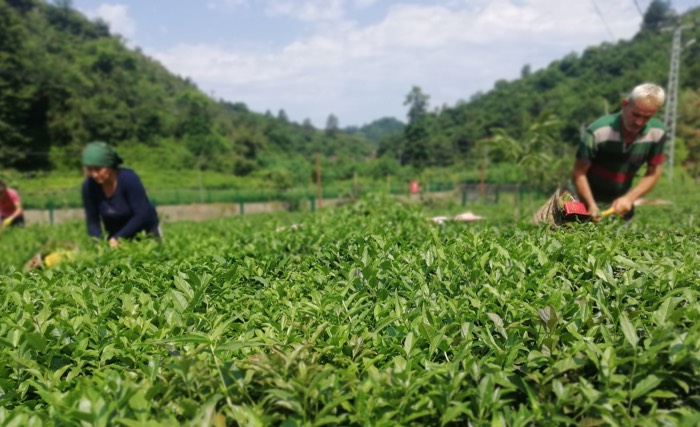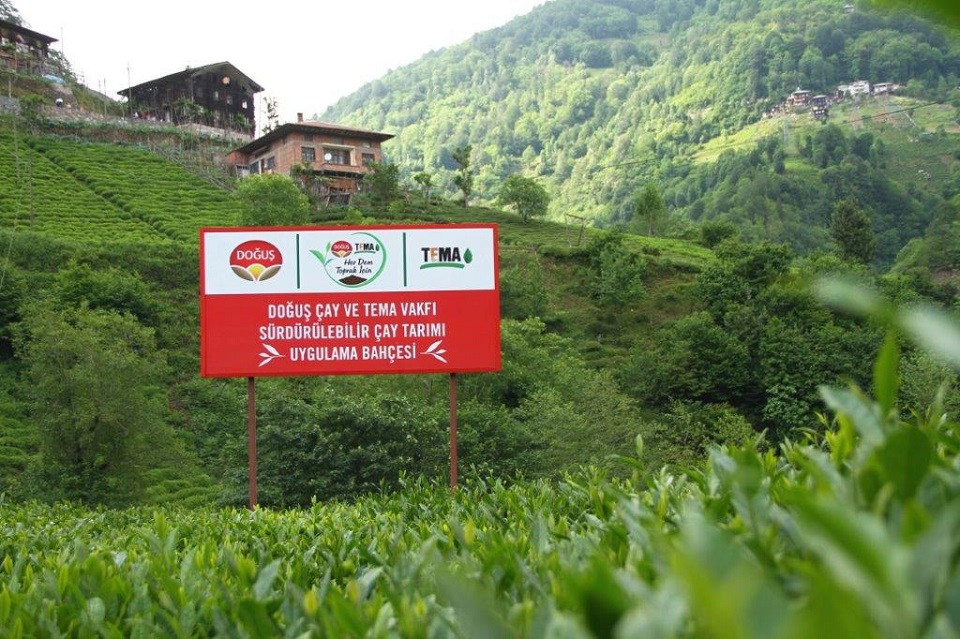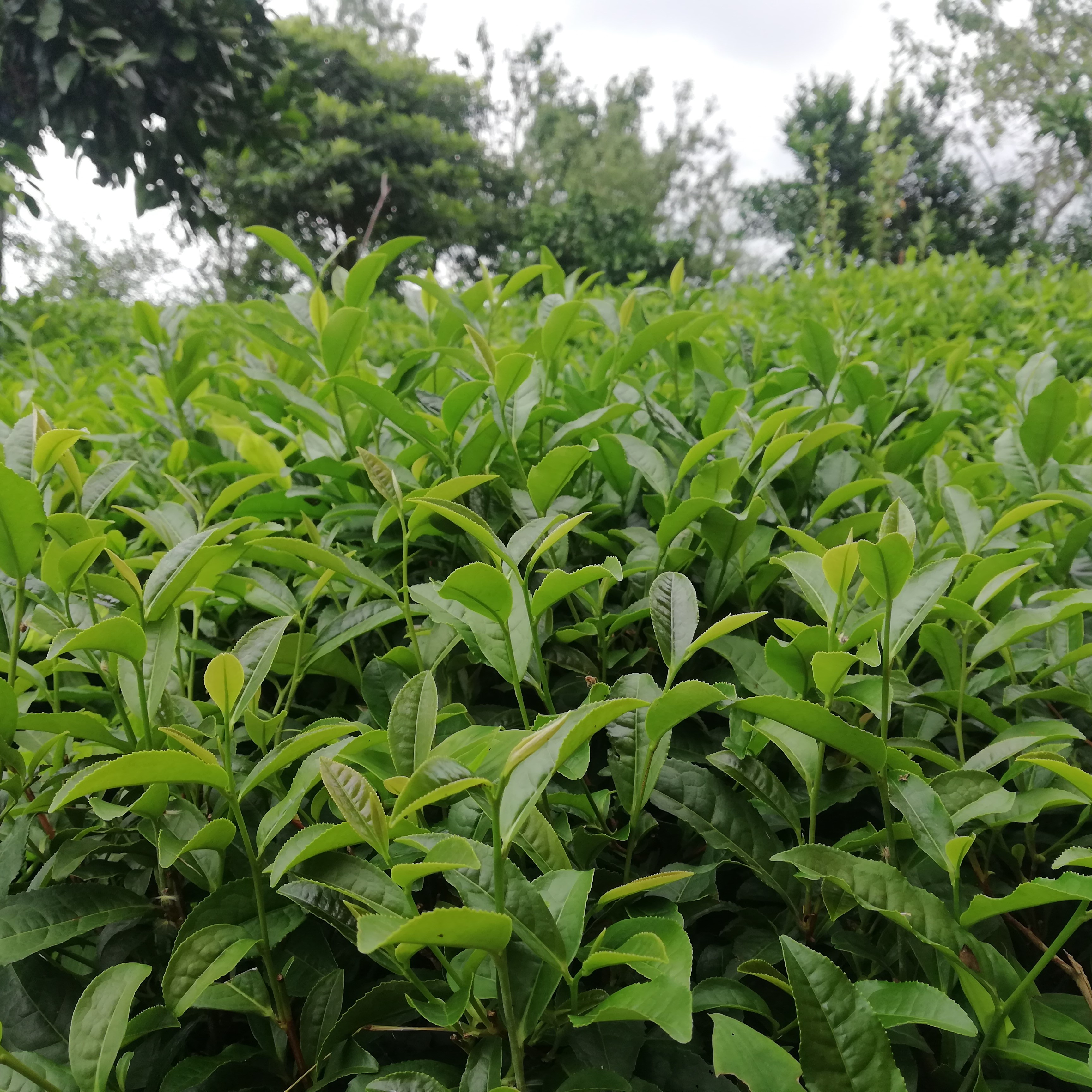In the first stage of the project for the years 2016-2017, it is planned to provide awareness training sessions for the purpose of the project to a target audience of approximately 7,000 people consisting of producers, tea experts, religious officials, women, teachers and children, and to form a common opinion with all stakeholders involved in tea production. In the 2nd phase of the project in 2018-2020, which includes sample application studies, it is planned to train 750 people consisting of producers, women, tea experts and religious officials every year; to create sample gardens where sample applications such as pruning, fertilisation, hoeing, dolomite (agricultural lime) and composting from tea waste will be carried out in 6 sample gardens selected to represent different valleys of Rize, and to establish a variety garden consisting of a thousand saplings to be used for material supply in the future with saplings produced from high-yielding tea varieties in the region.
In the first phase of the project in 2016-2017, 10,000 people were trained to raise awareness on the problem of acidification in tea soils. During the project period, the use of Ammonium Nitrate has been banned in the region and the use of Ammonium Sulphate fertiliser has decreased day by day. Thus, the problem of further acidification of soils has been greatly reduced in this process. In the 2018-2020 years of the project, which includes practices for reversing this acidity and improving soils, 1,637 people have been trained so far, and 1,500 nursery variety gardens have been established with saplings produced from high-yielding tea varieties. Project implementations were carried out in sample gardens in Buzlupınar, Kambursırtı, Şimşirli, Sümer, Sabuncular and Çağlayan locations. In particular, thanks to the practices related to composting from tea waste, both the reintroduction of tea wastes to tea soils and the improvement of soil acidity with dolomite applications were provided. As a result of all these applications, the soil structure, which was extremely acid (pH 4.14) in the year the project started, reached a moderately acid (pH 5.51) value with the project applications. With the improvement in soil structure, 38% yield increase was achieved in the sample application gardens compared to the neighbouring gardens.
As of 2020, the second phase of the project was completed and the third phase, which will cover the years 2021-2022, has started. The number of sample application gardens, which was 6 in the past, was increased to 9 in 2021 by including sample application gardens from Trabzon and Artvin provinces in addition to Rize province. In 9 sample gardens, tea compost, organic fertiliser and agricultural lime (dolomite) applications, hoeing studies, shoot development monitoring, soil and leaf analysis studies were carried out. Maintenance continued in the 1500 nursery tea variety garden established in 2020. Within the scope of Sustainable Tea Agriculture Trainings, 48 producers, 135 women and 230 university students were trained. While the soil acidity was pH 4.56 (very strong acid) in the witness plots of the four gardens whose applications continued from previous years with the applications within the scope of the project, it reached pH 5.84 (moderate acid), which is more ideal for tea cultivation in the application plots. In the new gardens, while soil acidity was pH 4.32 (extreme acid) in the witness plots, it reached pH 4.71 (strong acid) in the treatment plots although it was only the first year. Thus, a 55% yield increase was achieved in the old application gardens compared to the neighbouring plots, and a 17% yield increase was achieved in the new gardens, although it was the first year of the application.
In 2022, tea compost, organic and organomineral fertilizer, agricultural lime (dolomite) applications, hoeing, bud development monitoring, soil and leaf analysis studies were carried out in 9 sample orchards. According to the soil analysis results, the pH value in the 4 orchards where practices were continued from the past period was on average 4.18 (extreme acid) reaction class in the witness plots, while it was close to ideal (pH 5.5) in the application orchard and was on average 5.28 (strong acid) reaction class. In the witness parcels of the 5 orchards newly included in the project in 2021, the average pH level was in the 4.01 (extreme acid) reaction class, while in the application parcels, with sample applications, it was in the 4.68 (very strong acid) reaction class, approaching a more ideal situation compared to the witness parcel. As a result of the sample orchard applications, a 56% increase in productivity was achieved in the old application orchards compared to the neighbouring parcels, and a 30% increase in productivity was achieved in the new application orchards. Two orchard day events were organised, one for women and one in the female producer orchard. During the year, 126 producers, 165 women and 87 university students were trained within the scope of Sustainable Tea Agriculture Training. Maintenance and pruning activities continued in our tea garden, which we established in 2019 with 1,500 saplings.
In 2023, tea compost, organic and organomineral fertilizer, agricultural lime (dolomite) practices, hoeing, bud development monitoring, soil and leaf analysis studies were carried out in 9 sample gardens. As a result of the sample garden applications, a 54% increase in productivity was achieved in the old application gardens, which have been cultivated for 6 years, compared to the adjacent parcels, and a 38% increase in productivity was achieved in the new gardens, which have been cultivated for 3 years. As a result of the tea quality analysis made with fresh tea leaves taken from the application gardens, 15.5% in the amount of polyphenols, which have a significant effect on the taste and aroma of the tea, 12.5% in the amount of extract, which has an effect on the rate of infusion into water, and 8.6% in the amount of cellulose, which has an effect on the quality and yield of dry tea, was achieved in the project gardens. During the year, 304 producers, 237 women and 130 university students were trained within the scope of Sustainable Tea Agriculture Training. Maintenance and pruning activities continued in our tea garden, which we established with 1,500 saplings in 2019.
